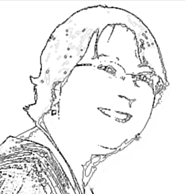Leslie M. Lecron's Self Hypnotism: The Technique and its Use in Daily Living is one of the classics on self hypnotism. I've read some complaints about Lecron's attitudes (categorizing homosexuality as a mental illness, for example, or saying that only medical professionals should be trusted with hypnosis - a view Milton Erickson shared), but every book (movie, play, essay, hypothesis, etc.) is a product of context: geography, gender, culture, class, year. Lecron's book is a product of a 1964 psychologist. What is it they say in the Twelve Step movement? Take what works and leave the rest. (The key is to experiment first, to learn whether it works for you or not.)
One of the things I like about Lecron's book is the resources he cites for learning about hypnosis and methods to develop awareness, sharpen focus, increase attention, deepen relaxation, and other skills that can be used to overcome obstacles of perception, belief, and habit. Throughout the text, he recommends books and authors and sometimes adapts their methods to hypnotic processes. (Unfortunately, the books he mentions aren't all listed in the bibliography, so you have to flip through the book looking for the italicized titles.)
Lecron's book does seem very dated to me; nevertheless, I like the way he describes working with ideomotor signals (finger signals or pendulum movements) to narrow down the range of past experiences that might be at the root of current troubling attitudes or habits. His background as a psychologist also made the book richer, for me. When I was growing up, migraines and allergies were the debilitating conditions in my family, and the root causes he identifies (repressed hostility and overprotectiveness) rang true to me as an adult.
I recently read a blog somewhere describing someone's Catholic-school experiences and how they remembered their family and classmates dealing with a "cool" priest and a "perv" priest with gossip and vigilance. Later, as adults, the real story came out, and they learned the cool priest was the actual pedophile and the perv wasn't a perv at all, but the overseer hired to make sure the kids were never alone with the pedophile. The grown children reviewed their memories and compared their youthful interpretation of characters and events with their informed adult memories. It struck me how very like hypnosis this was. Like Dave Elman's terrific book, Hypnotherapy, Lecron's book describes case studies of people whose experiences in childhood were the source of adult problems that were cleared up once that insight was identified and resolved with hypnosis.
Lecron's book is definitely a product of its time, but the methods are sound and described with adequate detail so that any reader can adapt them to their own uses.
Subscribe to:
Post Comments (Atom)




1 comment:
This is the first hypnosis book I read. It was in a high school library and it led me to a way to handle what I later learn to be a panic disorder. I have since found better works but this book will always have a place in my library.
Randal Fitzgerald CH
Post a Comment